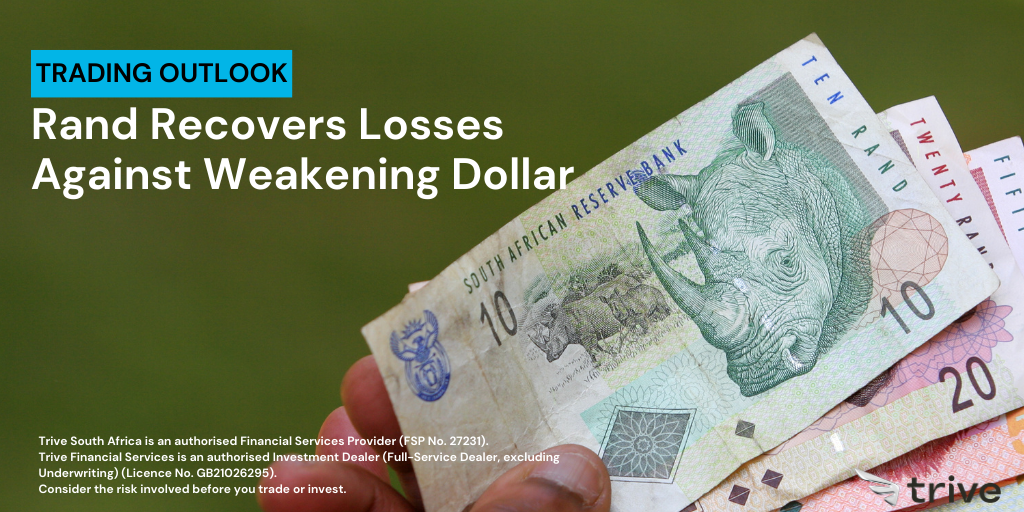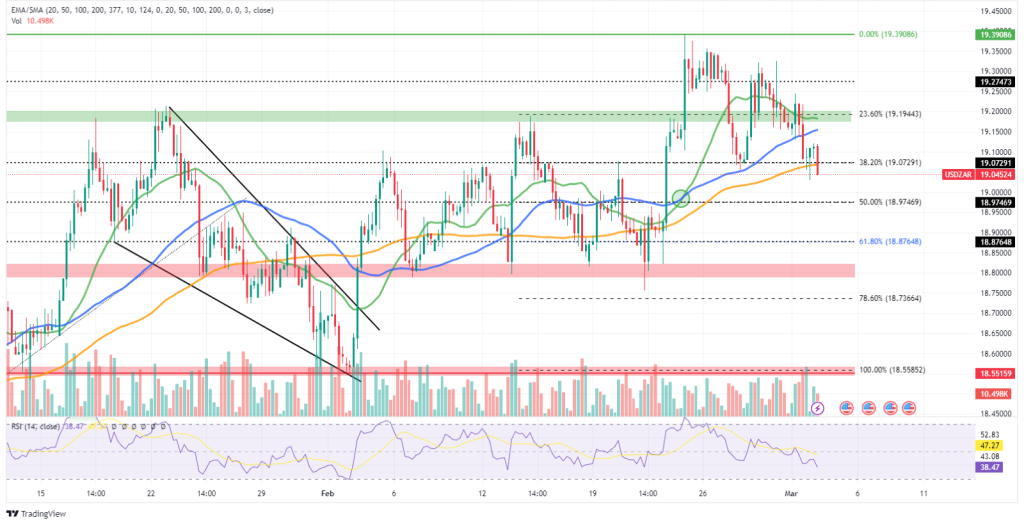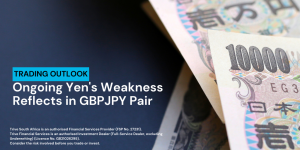
The South African Rand (ZAR) faces a challenging environment, trading near a four-month low against the US Dollar (USD) at around R19.1. The South African economy faces ongoing challenges from struggling state-owned entities managing critical infrastructure like railways, ports, and power. These concerns are compounded by the approaching election, which injects political uncertainty into the economic outlook. Further pressuring the ZAR, South Africa’s inflation ticked up to 5.3% in January, deviating from the South African Reserve Bank’s target range. This may lead to the bank delaying interest rate cuts, hindering economic growth prospects.
However, the ZAR finds some reprieve from a weakening USD. The US Dollar Index fell below 104 on the back of lacklustre economic data and dovish comments from Federal Reserve officials. This suggests a potential pause in the US interest rate hikes, which could dampen the USD’s appeal and offer some support to the ZAR.
4-Hour Technical Analysis:
The 4-hour chart shows that the USDZAR price action currently trades at R19.045254, exhibiting initial weakness to start the week. The price recently broke below the key moving averages [20-SMA (green line), 50-SMA (blue line), and 100-SMA (orange line)], indicating a potential bearish bias. However, the downward-sloping 20-SMA trades above the upward-sloping 50-SMA and 100-SMA, suggesting underlying bullish momentum struggling to break through.
The 20-SMA’s downward slope, positioned above the upward-sloping 50-SMA and 100-SMA, reinforces this bearish sentiment. Furthermore, the RSI, now at 38.47, underscores the selling pressure as it dips below the mid-point of 50.00. In the near term, Short-term trading opportunities could arise towards the initial support at the 50.00% Fibonacci retracement level (R18.97469) should the bears sustain a push below the 100-SMA-supported 38.20% Fibonacci retracement level. A successful break below the initial support on significant volume would likely bring the 61.80% Fibonacci retracement level at R18.87648 within reach of the bears in the short term.
However, failure to sustain a push below the 38.20% Fibonacci retracement level could leave a retracement towards the 23.60% Fibonacci retracement level (R19.19443) in the significant supply zone firmly in play. A confirmed break above the initial resistance could likely bring the R19.27473 and the last swing high of R19.39086 firmly into play.

Summary
The overall market sentiment surrounding the USDZAR is cautious. The South African economy faces headwinds, while the US Dollar’s future trajectory remains uncertain. While the technical picture remains unclear, the prevailing bearish fundamentals suggest that the path of least resistance for the USDZAR lies to the downside. A sustained break below the 38.20% Fibonacci level and significant volume could pave the way for a move towards the 61.80% level (R18.87648).
Sources: TradingView, Trading Economics, MarketScreener, Reuters.
Piece written by Mfanafuthi Mhlongo, Trive Financial Market Analyst
Disclaimer: Trive South Africa (Pty) Ltd (hereinafter referred to as “Trive SA”), with registration number 2005/011130/07, is an authorised Financial Services Provider in terms of the Financial Advisory and Intermediary Services Act, 37 of 2002. Trive SA is authorised and regulated by the South African Financial Sector Conduct Authority (FSCA) and holds FSP number 27231. Trive Financial Services Ltd (hereinafter referred to as “Trive MU”) holds an Investment Dealer (Full-Service Dealer, excluding Underwriting) Licence with licence number GB21026295 pursuant to section 29 of the Securities Act 2005, Rule 4 of the Securities Rules 2007, and the Financial Services Rules 2008. Trive MU is authorized and regulated by the Mauritius Financial Services Commission (FSC) and holds Global Business Licence number GB21026295 under Section 72(6) of the Financial Services Act. Trive SA and Trive MU are collectively known and referred to as “Trive Africa”.
Market and economic conditions are subject to sudden change which may have a material impact on the outcome of financial instruments and may not be suitable for all investors. Trive Africa and its employees assume no liability for any loss or damage (direct, indirect, consequential, or inconsequential) that may be suffered. Please consider the risks involved before you trade or invest. All trades on the Trive Africa platform are subject to the legal terms and conditions to which you agree to be bound. Brand Logos are owned by the respective companies and not by Trive Africa. The use of a company’s brand logo does not represent an endorsement of Trive Africa by the company, nor an endorsement of the company by Trive Africa, nor does it necessarily imply any contractual relationship. Images are for illustrative purposes only and past performance is not necessarily an indication of future performance. No services are offered to stateless persons, persons under the age of 18 years, persons and/or residents of sanctioned countries or any other jurisdiction where the distribution of leveraged instruments is prohibited, and citizens of any state or country where it may be against the law of that country to trade with a South African and/or Mauritius based company and/or where the services are not made available by Trive Africa to hold an account with us. In any case, above all, it is your responsibility to avoid contravening any legislation in the country from where you are at the time.
CFDs and other margin products are complex instruments and come with a high risk of losing money rapidly due to leverage. You should consider whether you understand how these products work and whether you can afford to take the high risk of losing your money. Professional clients can lose more than they deposit. See our full Risk Disclosure and Terms of Business for further details. Some or all of the services and products are not offered to citizens or residents of certain jurisdictions where international sanctions or local regulatory requirements restrict or prohibit them.




